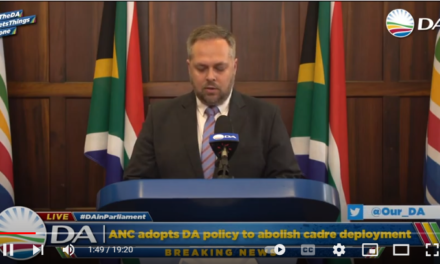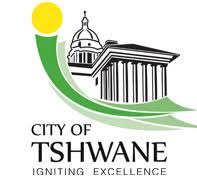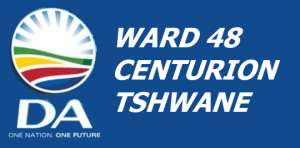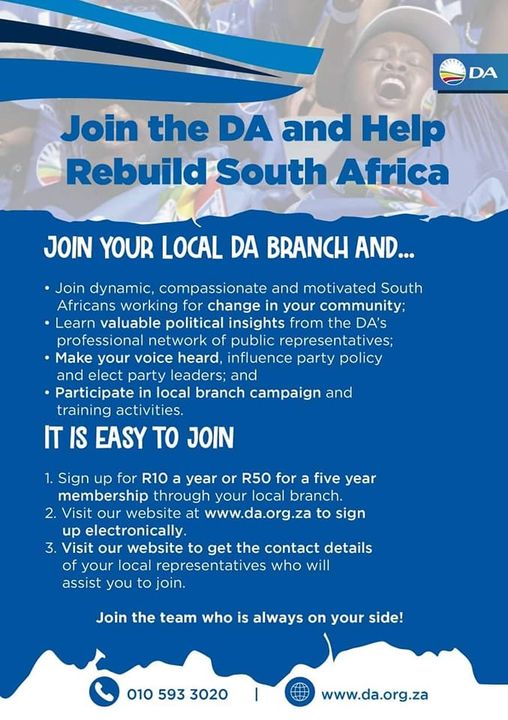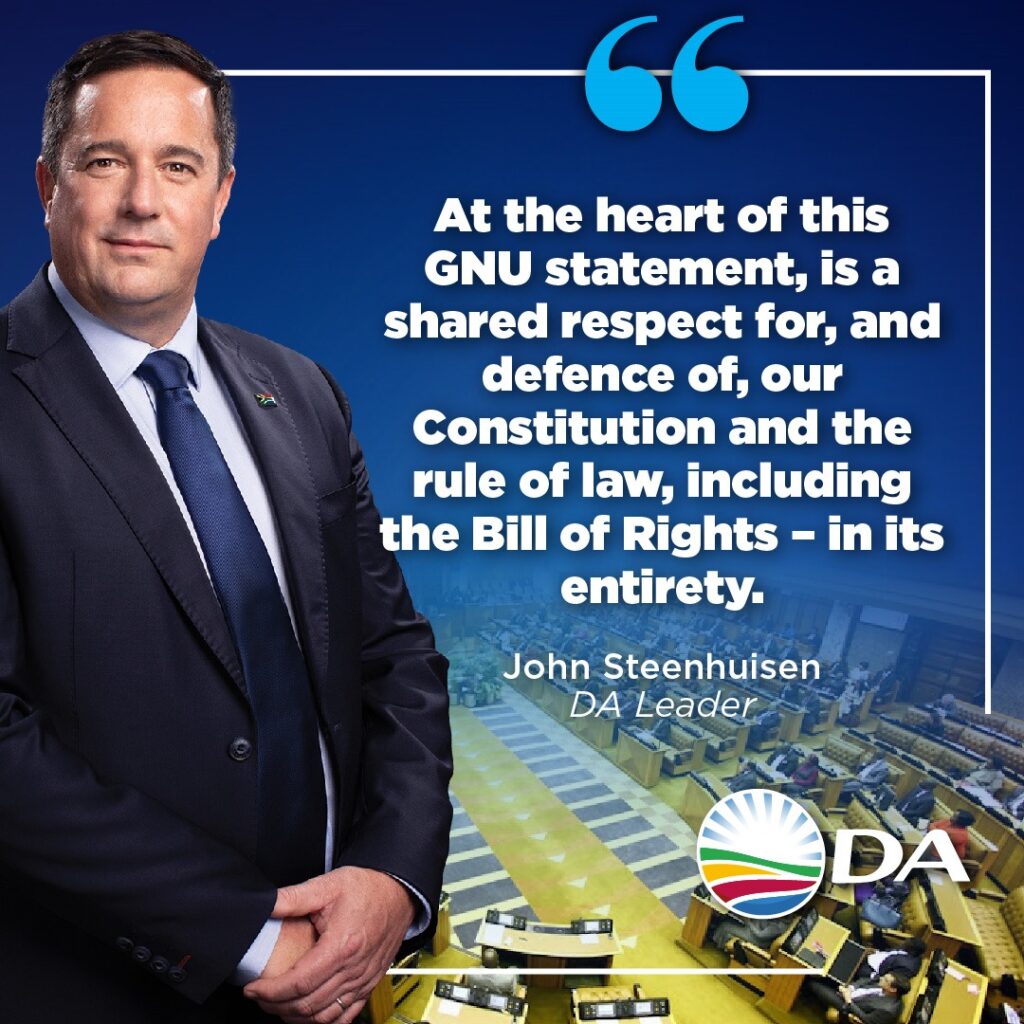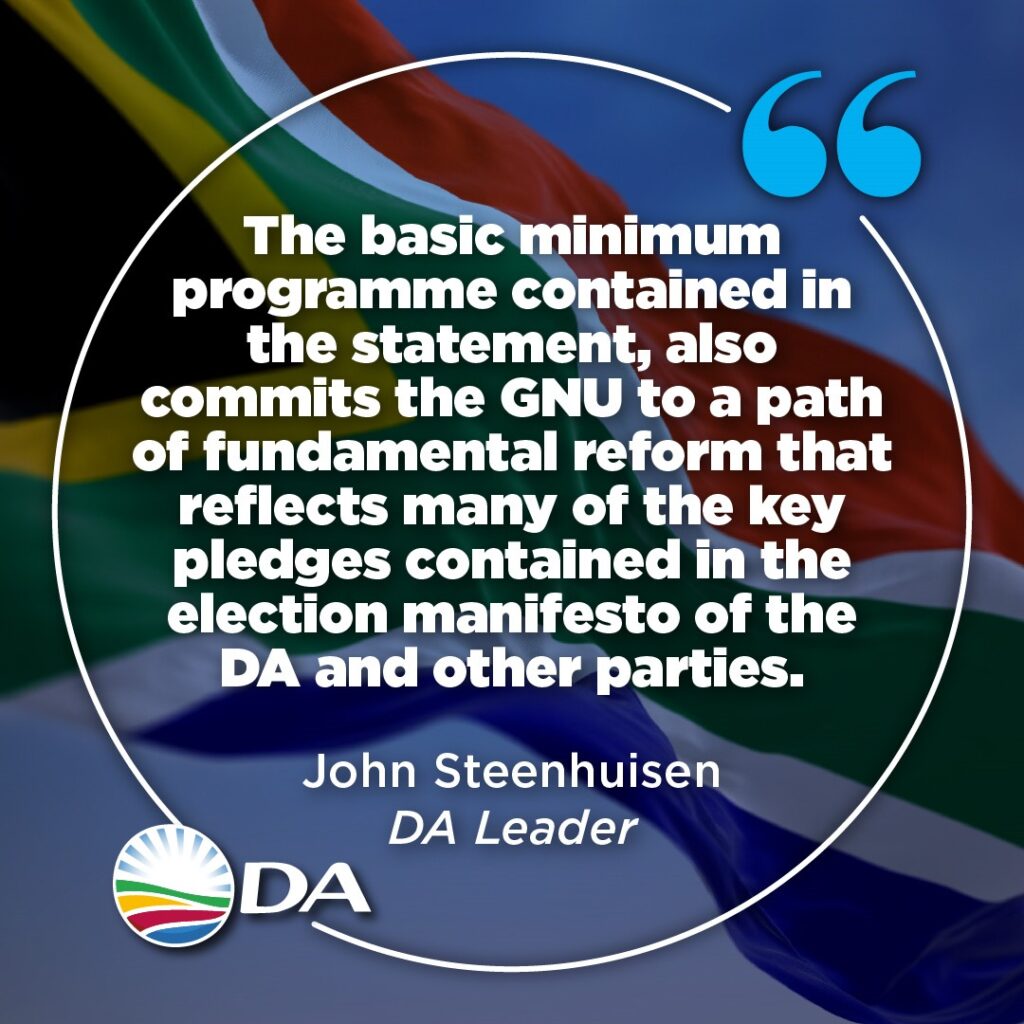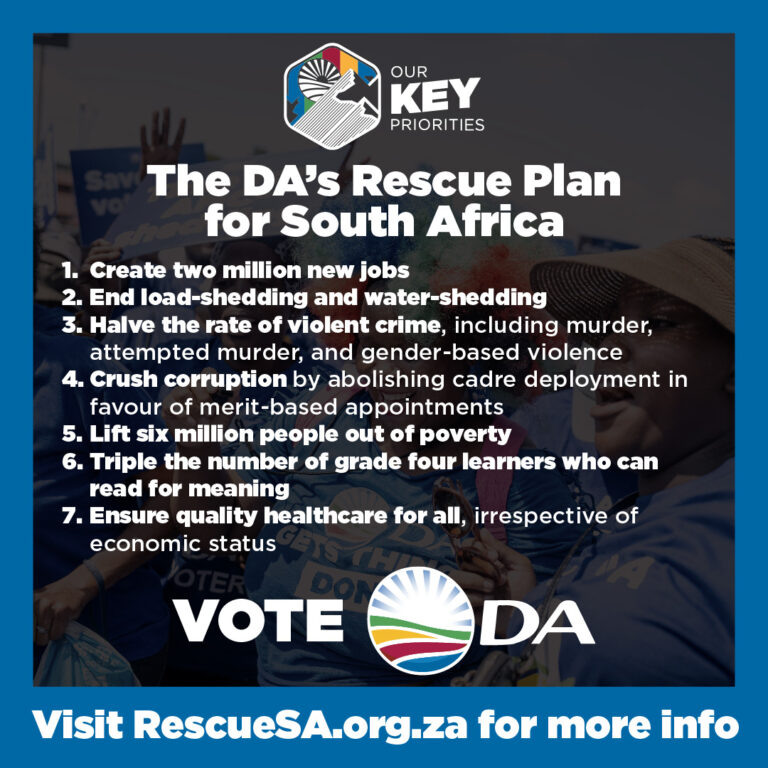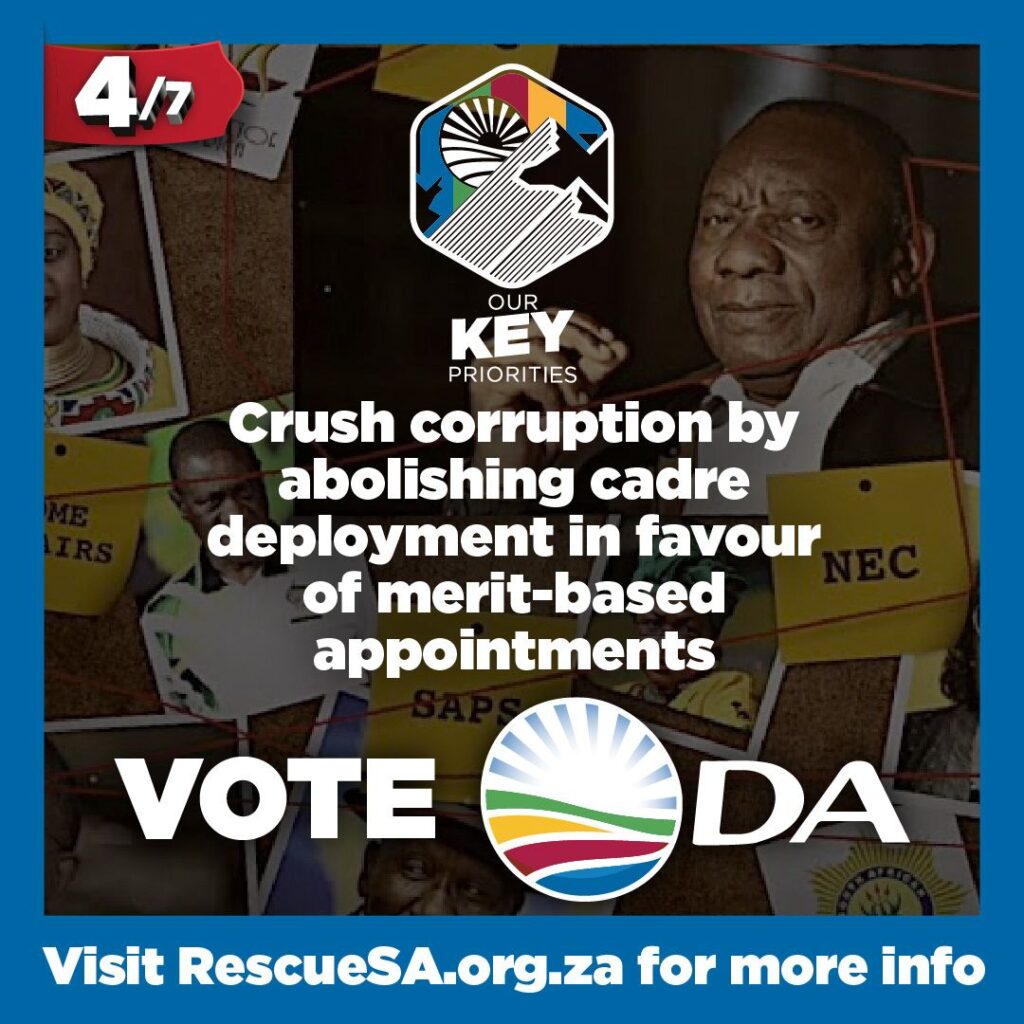GARETH VAN ONSELEN (Business Day, 2-Jun-21)
It has taken 15 years, but ideas around cadre deployment, state capture, nationalisation and the ANC’s internal culture of corruption, are now understood increasingly on the DA’s terms.
It must be hard being an political analyst outside of the DA universe; to feel compelled to torture reason and evidence into some patriotic narrative that smooths over the edges or cuts them right off. Look back over the last 10 to 15 years though, and, in a grand sense, the DA has been right about much more than it has been wrong, and particularly about the ANC. As for the rest, their blind optimism lies in a shambles.
But you would never have guessed it. Every step of the way, every grand DA warning, has been shunned or dismissed.
There was Zuma, and the DA’s 2009 Stop Zuma campaign, vilified as unnecessarily negative and hostile. There is cadre deployment, which Tony Leon and the DP no less, highlighted as profoundly dangerous in 2000, and which was ignored or rounded upon as wrong-headed. There was the prospect of state capture, articulated by Helen Zille as early as 2007, which was dismissed as hyperbolic.
In between, a thousand other warnings: on the decline of the health system, the failures of education, the neglect of our infrastructure, the weaponisation of race, the destruction of accountability and transparency, all of them, shot down as “Afro-pessimistic”, “negative”, “elitist”, “Western” propaganda.
And yet all of it has come to pass.
Independent of the DA, many would come to the conclusion there were problems on almost all of these fronts. But rarely, if ever, would you read a sentence that started, “As the DA has argued…” or “This aligns with what the official opposition has been arguing for years…”. The DA’s analysis was poison; to align with it was to endorse something profoundly politically incorrect. And so the party, almost always, was left to fend for itself intellectually.
The one exception to this, is the Afrikaans media. But then, it has always been, and generally speaking, better at differentiating reality from fantasy, and so has been more of an intellectual fellow traveller for the DA than adversary. As for the mainstream English media, it has facilitated an entirely hostile intellectual relationship with the DA for decades now. That has been to its own detriment.
There is a roaring trade in predictions out there. Banks and investment houses, big business and nongovernment organisations all make sure they are constantly briefed by those who can read the tea leaves but, for the longest time, doom and gloom was not a palatable commodity. Thus, they surrounded themselves with people who had access to the ANC, and who could explain to them the party’s best intentions. That was all they wanted to hear. For many, it still is.
And yet, step outside the ANC, and 15 years ago there was a blueprint for where SA was headed. Only, it was conceived of, written up and trademarked by the DA. And that simply could not be stomached.
The brutal truth is that the DA was right about the ANC. It was right about the threat it represented to democracy and its institutions. And it was right about the party itself, and how it’s authoritarian and totalitarian internal culture, could only ever produce a giant greed machine that served itself before the people.
Nothing is any easier for the DA today. It has laid down markers on the National Health Insurance (NHI) scheme, on the dangerous financial implications of free higher education, on expropriation without compensation, on a ballooning wage bill and the self-indulgent and contemptuous attitude of the ANC towards accountability. Finally, of the toxin that is corruption and how it is hardwired into the ANC. But, as with before, it gets little to no credit.
As before, commentators and analysts pride themselves on arriving at these conclusions by themselves. Sometimes they do so before the DA, often after it, but what they will never do, is acknowledge that, in the big picture, the DA has been right most of the time. For the fourth estate, SA’s condition can only ever be described independently of the DA.
But things have changed in one respect. Even if independent of the DA, the party has influenced the way the ANC is analysed. Even if Cyril Ramaphosa did add another layer of rose-tinted gloss to the way many view the ANC, it has peeled off relatively quickly. Back in the days of Thabo Mbeki, you couldn’t make a scratch in it.
Things were hardest then for the DA. The ANC, then capable of producing some (albeit artificial) intellectual support, would flood the papers with zealots. The likes of Christine Qunta and Ronald Suresh Roberts would provide the illusion of some ANC intellectual hinterland. They would torture both reason and the DA on a daily basis.
Today, bereft of anyone capable of putting two thoughtful sentences together, the ANC doesn’t even have the pretence of an intellectual vanguard. Just Twitter, and an army of semi-literate hacks, who churn out clichés and slogans such as the fourth industrial revolution.
Read the DA’s media statements on institutional decay from, say, 2004 — when the ANC was at its electoral zenith — and they seem entirely reasonable today. But, back then, they were treasonous — a slur the ANC used to direct at the official opposition all the time. And one, like so many others, adopted and parroted by the commentariat.
The illusion of ANC competence was perhaps first dented in 2007, when load-shedding arrived in SA. It is astounding, even today, how little responsibility Mbeki is made to carry for that failure — one that has decimated a country. It is how many analysts cope with their predicament and keep their romantic attachment to the idea of a competent ANC alive. The Mbeki years were what we want to return to, even if they laid the foundation for the economic wasteland we inhabit today.
Through all that, the DA never wavered. It counted for nothing. Its analytical value today remains as toxic as it ever was. No-one ever wants to learn from the DA because they fear it would go on their CV, and that would be the end of them.
So much energy is poured into examining the DA’s faults instead — of which it has many. But held up to the ANC, they are like splinters to a tree. The resultant false moral equivalence allows for the distance between truth and DA analysis to always be presented as substantial.
SA is astounding in that regard. Imagine having a blueprint for the future and ignoring it because you feel some embarrassment at associating with it, because you don’t like the author. What kind of an intellectual would that make you? A cowardly one at the very least.
It doesn’t even stop at dismissal: there are those in the media today who argue it is the DA, through the capture of the majority of votes in SA, has in fact aided the ANC’s decline. Not even Bizzaroworld could produce that kind of contradiction. But the DA does have history on its side. Look through the annals, and it features well. It might not have translated into a majority vote share but, you would think, it enough to carry the majority of the commentariat, ostensibly more invested in reason and evidence than political correctness. Alas
The DA can take some satisfaction at the current state of the analytical world. It has taken 15 years, but ideas around cadre deployment, state capture, nationalisation and the ANC’s internal culture of corruption and nepotism, are now understood increasingly on its terms. That is a significant hegemonic shift. True, the ANC itself is largely responsible for that — it had to take the country to the brink for many to see things that way. But it is a DA victory, regardless.
There are many reasons the DA doesn’t enjoy greater electoral success. One of them is that it made the mistake of being right about the ANC. Nobody likes that, especially not when it is your job to be right about the ANC, and you were wrong.
Perhaps one day you will see an editorial that sets out the many and various prescient DA positions, and says, “The DA called it”. Perhaps that is the next step in the evolution of the SA commentariat, not just to adopt the DA’s core analysis, but to be brave enough to actually acknowledge it where appropriate. Then again, perhaps not.

